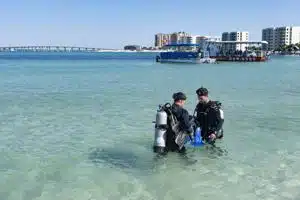(The Center Square) – One hundred days into his second term, President Donald Trump has secured water rights for south Texas farmers ensuring that Mexico complies with a 1944 era treaty.
“In a historic demonstration of leadership, President Trump prioritized ensuring Mexican water deliveries for Texas farmers under the 1944 [Treaty of Utilization of Waters.] Through the direct engagement of Secretary of State Marco Rubio, Agriculture Secretary Brooke Rollins, and Deputy Secretary of State Christopher Landau, we are now delivering on the President’s promise,” the Secretary of State’s Office announced. “Mexico has committed to make an immediate transfer of water from international reservoirs and increase the U.S. share of the flow in six of Mexico’s Rio Grande tributaries through the end of the current five-year water cycle.”
Doing so provides immediate and short-term water relief to Texas farmers and ranchers in the Rio Grande Valley in the current growing season through October.
U.S. and Mexican officials are also developing a long-term plan to reliably meet treaty requirements and address outstanding water debts, according to the announcement. This includes Mexico providing additional monthly transfers and regularly consulting on water deliveries to Texas, according to the announcement.
The announcement came one month after Trump halted water shipments to Mexico and threatened additional tariffs and even sanctions to enforce the treaty, The Center Square reported. He did so after Republican and Democratic members of Congress called on the Biden administration for four years to enforce the treaty to no avail. Mexico refused to supply water to south Texas farmers, contributing to a water shortage that resulted in the last sugar mill in Texas closing last year.
The Rio Grande Valley in Texas is among the most fertile agricultural regions in the state and country. In order to grow a wide range of crops, farmers rely on water from the Colorado and Rio Grande rivers. To manage water usage and conservation efforts, Mexico and the U.S. entered into a 1944 Treaty of Utilization of Waters.
The treaty governs water usage between the U.S. and Mexico, including from two international reservoirs, Lake Amistad and Falcon Lake in Texas along the international border. Mexico has historically released water storage from Lake Amistad to Mexican growers, not to Texas growers, and the U.S. federal government hasn’t enforced the treaty. Last year, Mexican officials killed any agreements to release water to Texans, even running ads in Mexico City to protest compliance with the treaty, according to several news reports.
Under the treaty, Mexico is obligated to deliver 1.75 million acre-feet over five years to the United States from the Rio Grande River; the U.S. is obligated to deliver 1.5 million acre-feet of water to Mexico from the Colorado River.
Prior to Mexico agreeing to comply with the treaty, the U.S. Department of Agriculture and U.S. Sen. Ted Cruz, R-Texas, worked on providing a $280 million USDA-Texas Department of Agriculture grant to assist eligible Rio Grande Valley farmers and producers suffering from Mexico’s failure to deliver water.
Cruz lauded the administration’s successful negotiation after “fighting for years to secure those deliveries, including by advancing sanctions legislation in the United States Senate and by emphasizing to both American and Mexican officials that the U.S.-Mexico relationship cannot proceed productively unless Mexico meets its obligations,” he said. While the USDA grant was an important way to provide critical economic relief to RGV farmers, “that was only, and explicitly, a stopgap measure,” he said.
The bigger accomplishment was that the Trump administration ensured “that other nations must meet their obligations to Americans,” he said. Ongoing negotiations will also “establish a basis for the further necessary work that must be done to assure Texas farmers of reliable and predictable water supplies.”
U.S. Rep. Monica De La Cruz, R-Edinburg, who has worked for years to bring more water to the RGV, said she was told for two years by the Biden administration that “nothing could be done.”
“Now, we finally have a President and an Administration that has shown strength and delivered,” she said.









































